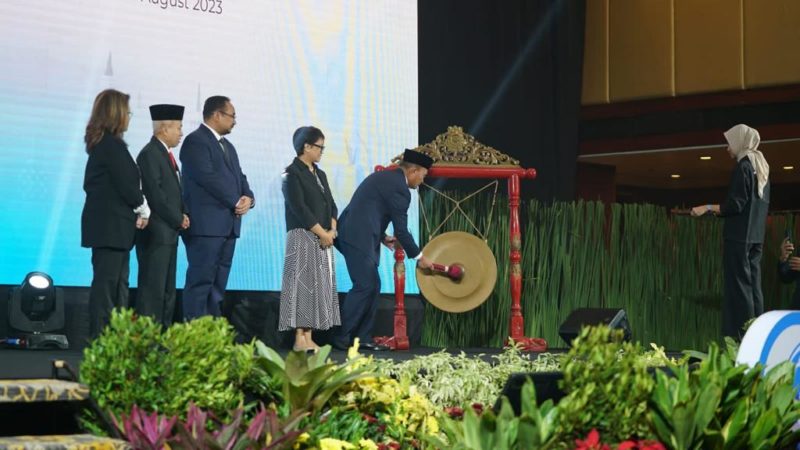Jakarta, Indonesia – The Jakarta Plurilateral Dialogue (JPD) 2023 was officially opened by the Indonesian Coordinating Minister for Human Development and Culture, Muhadjir Effendy at the Borobudur Hotel, Jakarta (29/8). In this opportunity, he stated that JPD 2023 raised the theme of tolerance as a humanitarian urgency in the midst of rampant acts of discrimination and intolerance based on religion and belief that are occurring globally.
“JPD 2023 is relevant to answering the challenges of world peace, for this reason, a culture of tolerance is necessary to maintain the diversity of society and all countries need to work together constructively to build a culture of tolerance,” said Muhadjir.
In order to promote a global tolerance culture, the Foreign Minister, Retno Marsudi reminded of the importance of every country’s commitment in implementing Resolution 16/18. Therefore, the JPD 2023 dialogue forum is expected to be a good practice to deliver a culture of faith-based tolerance for member countries.
“Freedom of expression doesn’t mean being free to discriminate and hurt other parties. Freedom of expression should not sacrifice the right to be free from discrimination,” she insisted.
Yaqut Cholil Qoumas, Indonesian Religion Minister also stated the urgency of tolerance based on religion and belief in the midst of today’s global developments. In his speech, the minister who is familiarly called Gus Yaqut stated that Indonesia’s experience in fostering tolerance is closely related to the culture of democracy embraced by Indonesian people.
“Indonesia is one of the countries with the longest and most intense tolerance experiments. Indonesian tradition and belief encouraged the citizens to understand, illustrate, and translate differences into the facts which can be understood and adjusted with the social interaction between citizens,” said Gus Yaqut.
The JPD 2023 Agenda which was held by the Executive Office of the President,Ministry of Religious Affairs, and Ministry of Foreign Affairs involved 5 dialogue sessions which explored good practices and learning from various global stakeholders to strengthen Resolution 16/18 UNHRC implementation. The collaboration between these ministries and institutions aimed to show Indonesia’s modality to promote and encourage the fulfillment of human rights without discrimination based on religion and belief.
The UN resolution was a resolution to combat intolerance, negative stereotypes, and stigmatization, discrimination, incitement to violence, and violence against people based on religion or belief.
